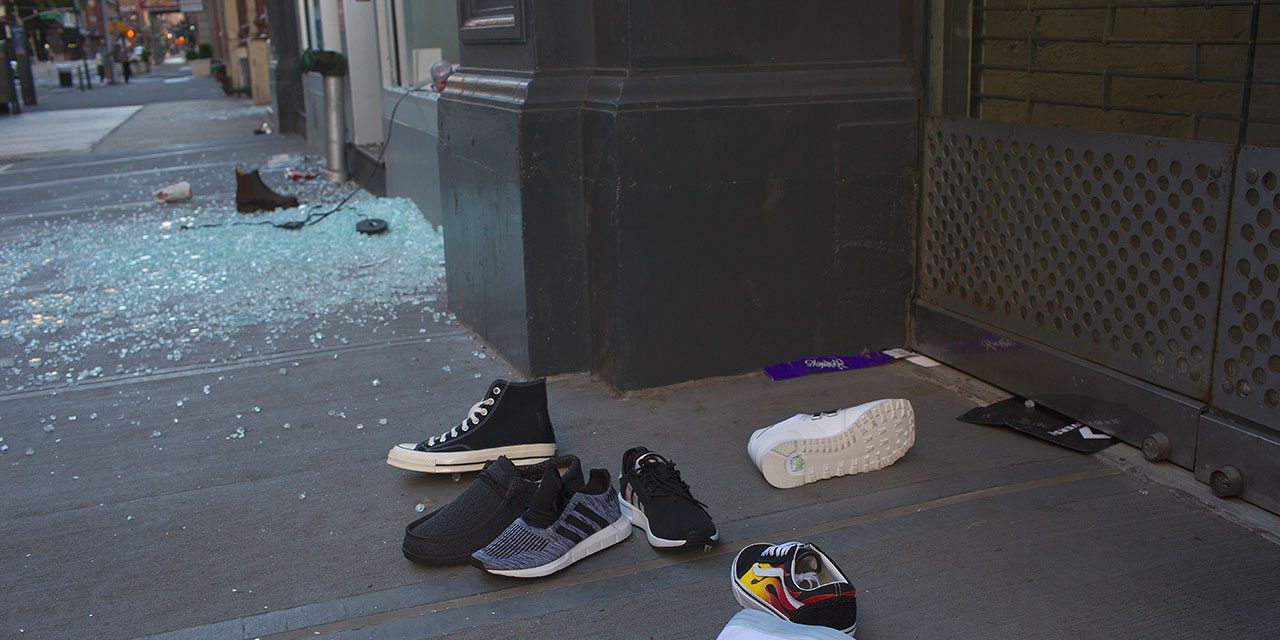
Immigrants from poor countries like my own, Venezuela, often joke that Americans complain too much about “First World problems.” Back home, we don’t worry about microaggressions; we’re too busy figuring out how to put food on the table or stay safe from crime and government censorship.
But here’s the irony: increasingly, Americans aren’t complaining enough about Third World problems. Trash-strewn streets, loud music in public, brazen shoplifting, rising disorder, and a general decline in civility are becoming common in major U.S. cities. In New York, the problem is hard to miss.
Finally, a reason to check your email.
Sign up for our free newsletter today.
Lately, even moderate liberals have joined conservatives in voicing concern. The far Left, in turn, shrugs and says, “Move to the suburbs”—as if this is just how cities are supposed to be.
They’re not. In fact, in Venezuela, we have a name for this disorder-justifying mindset: Third Worldism. It’s not about race, nationality, or even poverty. Third Worldism is the belief that you’re entitled to use public spaces without any responsibility to care for them. It’s the idea that you can do whatever you want, no matter how it affects others—littering without shame, blasting music at fellow citizens, shoplifting, jumping turnstiles, refusing to pay the bus fare, defacing property, and ignoring rules meant to keep the commons usable for everyone.
The attitude behind these behaviors marks the true dividing line between the First and Third World mindset. It isn’t wealth alone that keeps cities livable. It’s culture: the rule of law, cleanliness, safety, and a shared civic compact. When residents uphold these norms, urban cores thrive as centers of prosperity and genuine diversity. When the compact breaks down, the result is social collapse and segregation.
I’ve been struck by how this compact has broken down in New York City. Around the world, Gotham is seen as the ultimate symbol of First World success. Yes, it’s crowded and messy in the way big cities are—but it has worked. Until recently, most people followed the rules well enough to make life functional for the millions who share these tight spaces. The subway, the streets, and the parks belonged to everyone because there were legal and unspoken limits on how to use them.
Today, acknowledgment of those limits is waning. Lawmakers effectively decriminalized shoplifting, and retailers have closed down stores or locked up products behind glass in response. Streets and subways have become dirtier and more dangerous. Panhandling and aggressive behavior go unchecked. Neighborhoods are forced to accept encampments or unsafe shelters. Heroes who save strangers in public transit, like Daniel Penny, face bogus charges while criminals go free.
I remember seeing Columbia University students jump the turnstiles at the 116th Street subway station. They did it not because they were poor but because they were entitled, and because it was socially acceptable. The one time I politely stood up to someone violating social customs on the subway—a middle-aged woman playing loud videos on her phone—she threatened to kill me.
Though an immigrant myself, I’ll admit it: the recent migrant crisis has made these problems worse. Not all immigrants are the same. Before the Biden administration’s border surge, Venezuelans arriving here were mostly middle-class professionals escaping socialist devastation. They saved money, planned their moves carefully, and observed the cultural norms that make living in a First World society possible.
But the recent wave of migrants—most arriving illegally—lacked that same preparation or willingness to assimilate. I’ve seen this difference firsthand in New York City shelters, where groups of young men from Venezuela fight among themselves. It pains me to say it about my compatriots, but they’re importing the same social habits that helped wreck our native country.
The point is not to oppose immigration but to demand more selective immigration policies and stronger enforcement of civic norms, for newcomers and native-born Americans alike. After all, many of the worst violations of public order are committed not by immigrants but by native-born citizens.
Third Worldism thrives when rules aren’t enforced—when stealing isn’t punished, streets aren’t cleaned, litterers aren’t fined, and no one says “stop.” To allow these behaviors isn’t compassion. The people who suffer most when public order breaks down are the poorest residents who can’t afford to move away, the small business owners whose businesses die, and the transit riders who must endure harassment and unsafe situations because they can’t afford to own a vehicle.
If America wants to remain a First World country, it must take seriously the habits and values that make “First World problems” possible in the first place. We should aspire to live in a society where people’s biggest complaints are petty and privileged—because that means that their basic needs are being met. To get there, we must reject Third Worldism.
That means governments must enforce public rules, and so must we. It means restoring consequences, legal and social, for antisocial behavior. It means expecting newcomers to adopt long-established American norms, not reshape them for the worse. And it means rejecting the cultural relativism that excuses bad behavior in the name of empathy or diversity.
I came to America for the rule of law, safety, freedom, and opportunity. If those disappear, what’s left to distinguish us from the places that people like me fled?
Photo by Andrew Lichtenstein/Corbis via Getty Images
City Journal is a publication of the Manhattan Institute for Policy Research (MI), a leading free-market think tank. Are you interested in supporting the magazine? As a 501(c)(3) nonprofit, donations in support of MI and City Journal are fully tax-deductible as provided by law (EIN #13-2912529).
Source link
















